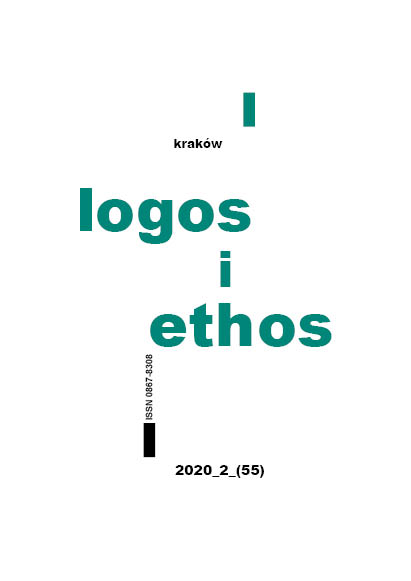Immoralizm w pedagogice Paula Häberlina a koncepcja człowieka Adama Węgrzeckiego
DOI:
https://doi.org/10.15633/lie.3815Słowa kluczowe:
pedagogika, wychowanie, podmiot, wartość, chrześcijaństwoAbstrakt
W pracy zestawiono stanowiska dwóch filozofów, których wizje zdecydowanie różnią się od siebie. Celem jest ukazanie oryginalnej koncepcji wychowania na podstawie światopoglądów Paula Häberlina i Adama Węgrzeckiego. Häberlin twierdzi, że osiągnięcie ideału etycznego jest niemożliwe, dlatego zaleca oddanie się wszechogarniającej łasce Boga. Wieczna walka między sumieniem a popędem jawi się jako absurdalna, gdyż zło jest wieczną, nieodłączną częścią duszy i należy ten fakt zaakceptować. Zamiast dążenia do ideału etycznego, zaleca dążenie do szczęścia i bycie sobą. Popiera wychowanie do chrześcijaństwa. Walki sumienia należy uznać za wychowawcę i toczyć je do końca. Należy kierować się przede wszystkim etosem myślenia, następnie etosem sumienia i religią. Natomiast Węgrzecki skupia się na aksjologii i filozofii spotkania. Przedstawia wizję człowieka jako istoty stającej przed wyborem, który dotyczy wartości. W przeciwieństwie do Häberlina nie porusza kwestii religii. Człowiek jest istotą wolną i świadomą, do niego należy podjęcie decyzji. Wpływ na to, jakie wartości wybierze, mają często inni ludzie. Prawdziwe spotkanie pomaga odnaleźć siebie, zmienia człowieka, zmienia też sposób postrzegania wartości. Zdaniem polskiego filozofa człowiek kształtuje siebie, podejmuje decyzje i jest za nie odpowiedzialny. Próbując połączyć światopoglądy obu filozofów, nasuwają się pewne wnioski dotyczące wychowania. Wpajając wychowankom szlachetne wartości, być może należy uświadomić im, że wybory nie zawsze są łatwe, że czasem pragnienia są przeciwstawne woli i przyjętym wartościom, i że błędy są nieuniknione. Wychowanków należy akceptować, nawet jeśli zboczą z etycznej ścieżki, co nie oznacza, że negatywne zachowania należy zostawić bez wyciągania konsekwencji. Należy zachęcać wychowanków do poznawania samych siebie i stawania się sobą, a także do otwartości na relacje międzyludzkie, przy jednoczesnym dążeniu do szczęścia. Życie w zgodzie z wybranymi wartościami moralnymi przynosi poczucie szczęścia i wewnętrzny spokój.
Bibliografia
von Balthasar H. U., Pisma wybrane, t. 1: Pisma filozoficzne, Kraków 2006.
Häberlin P., Allgemeine Pädagogik, Vorlesungen, gehalten im Sommersemester 1940, Basel 1940.
Häberlin P., Das Gute, Basel 1926.
Häberlin P., Wider den Ungeist. Eine ethische Orientierung, Zürich–Leipzig 1935.
Häberlin P., Ziel der Erziehung, Basel 1917.
Pyka M., Wokół fenomenologii podmiotu Adama Węgrzeckiego, Kraków 2018.
Węgrzecki A., Wokół filozofii spotkania, Kraków 2014.
Węgrzecki A., Zarys fenomenologii podmiotu, Kraków 1996.
Pobrania
Opublikowane
Numer
Dział
Licencja
Autorzy publikujący w czasopiśmie udzielają jego wydawcy zgody o następującej treści:
- Autor zachowuje autorskie prawa majątkowe do utworu, a jednocześnie udziela wydawcy czasopisma zgody na jego pierwszą publikację w wersji drukowanej i wersji online na licencji Creative Commons Uznanie autorstwa 4.0 Międzynarodowe oraz zgody na wykonywanie opracowań, w tym przekładów.
- Autor ma możliwość udzielania zgody niewyłącznej na opublikowanie utworu w wersji, która ukazała się w czasopiśmie (np. zamieszczenia go w repozytorium instytucjonalnym lub opublikowania w książce), wraz z informacją o jego pierwszej publikacji w czasopiśmie.
- Autor może umieścić swój utwór online (np. w repozytorium instytucjonalnym lub na swojej stronie internetowej) jeszcze przed zgłoszeniem utworu do czasopisma.

